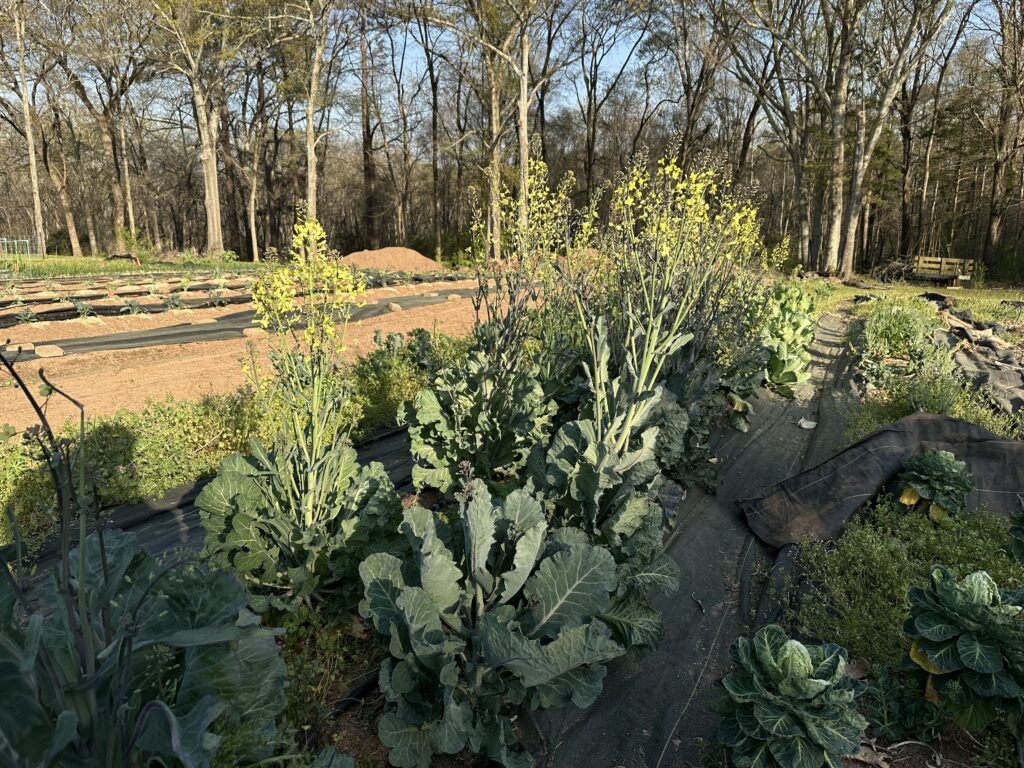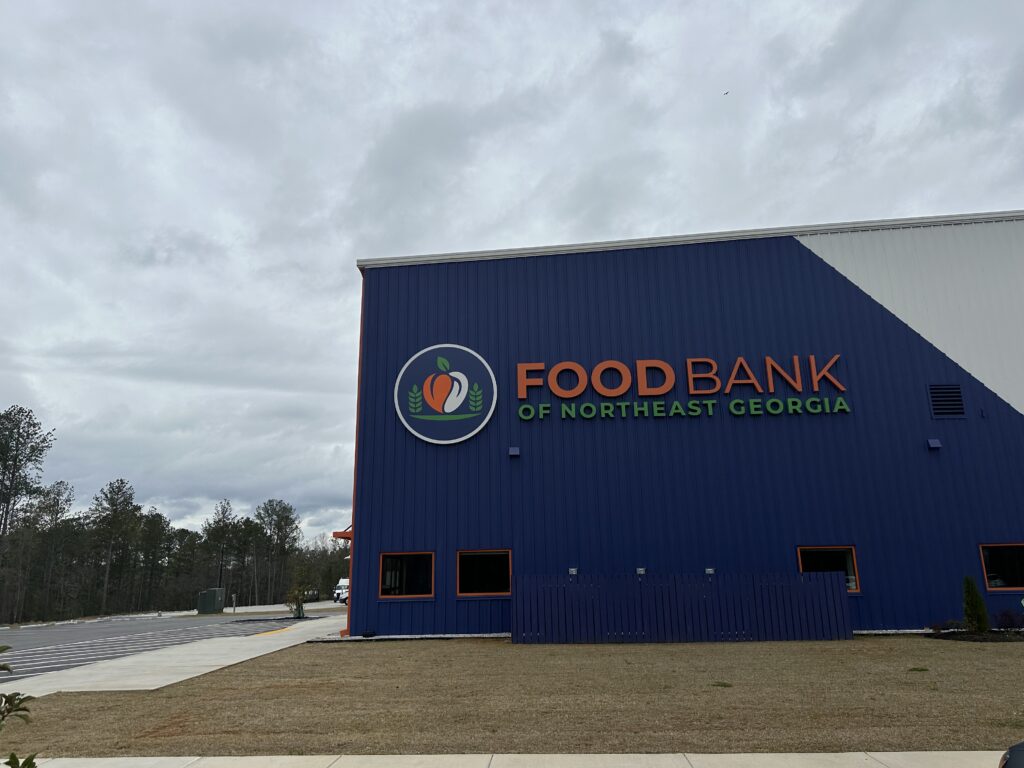When Dennis Mason and Eleanor Walker, a couple living in Watkinsville, heard there was a need for food at the local food bank, they knew they wanted to do something, even if only on a small scale.
It began as a small garden that Mason would tend to in his free time, inspired by how his parents had a garden when he was young.
“In that time, everyone had that capacity — everyone knew that our food came from the Earth,” said Mason. “Everyone knew how to till the Earth, work the Earth and plant and harvest and grow your own food.”
He was cultivating enough produce to supply his home, and occasionally his neighbors might be offered an item or two. But when he retired from his job in 2023, he told his wife, Eleanor Walker, that the garden was going to play a more prominent role in his life.
Salem Gardens was born from this conversation.
Walker herself had a history of loving to garden, with some of her earliest memories being working in the garden with her grandparents. She finds it to be a lost art now, with fewer people turning to farming.
We always had a big chest freezer. Corn, butter beans, meat, whatever. That’s a generational change,” said Walker.
Both Mason and Walker graduated from the University of Georgia, a stone’s throw from their garden. Mason dedicated his life to building not only the home that they live in part-time, but also the wood shop, the greenhouse and the shed for the garden area.
Walker takes pride in her advancements in the technology for the garden like water timers for the separate beds.
Their gardens are far more advanced than their respective parents’ and grandparents’, but ultimately, their goal is to get people more interested in the roots their families instilled in them.

“You can look at the broad picture of time passing and the people that have affected us, our parents and grandparents, and the situation they were in. It was a more agrarian world with a rich culture of food — they celebrated their life with food. It was subsistence,” Mason said.
Their efforts are a year-round project of planting, cultivating and harvesting.
“In the spring it will be all the brassicas. Broccoli, cauliflower, collards, kale, chard,” said Mason. “By June, we will have onions and garlic. In summer, peppers, eggplants, tomatoes … There is something growing all the way around.”

Farm to Food Bank
As the first harvest of 2023 came through, Mason and Walker realized just how much excess there was.
They didn’t want it to go to waste, but only a few of the items they grew could be canned or frozen.
That’s when they consulted with a friend, Rick Waters. He told them about the local food bank’s need for fresh produce. For Mason and Walker, this felt like the absolute right choice. Their excess would be donated to the Northeast Georgia Food Bank in Athens, an organization devoted to providing access to food for individuals across the city.
“I think that first year we donated 300 pounds, and we felt great. Last year it was right over 2,100 (pounds), and we will have that again this year,” Mason said.

That same friend, Rick Waters, volunteered to help in the garden, as well as transport the thousands of pounds of produce over the course of the year to the food bank.
He packs up his massive van with a couple hundreds pounds of fresh fruit and vegetables every single week.
They take it directly off the vine to the sink, then pack it into crates to fill the van.
“When they [the food bank] get a bunch of stuff from Kroger or Publix, so much of it is just rotten, they are basically just culling out the good stuff from the bad. It makes our stuff look so much more attractive because it is just picked. It hasn’t been on a truck from California or in a store for a week,” said Waters.

He has found the process of helping in the garden to be not only rewarding, but humbling.
I would say mostly it’s the camaraderie. Certainly being able to give back fresh food that I didn’t have growing up and knowing it’s going to help kids,” said Waters.
Food Insecurity, Need for Fresh Goods
The U.S. Department of Agriculture defines food insecurity as “a household-level economic and social condition of limited or uncertain access to adequate food.” Food insecurity in Athens has recently been on the rise. A UGA study concluded that 1 in 5 Athens residents are food insecure. A Grady Newsource article found that of the food insecure individuals in Athens, 35% do not qualify for federal food assistance.
Local food banks have programs like Meals on Wheels, which Mason, Walker and Waters have all volunteered for before.
“You go at food insecurity in all the ways that you can. The food bank gets big grants and makes deals with the large grocery stores … we are just doing the part of the puzzle that we can do,” said Mason.

Abby Wright is a senior majoring in journalism at the University of Georgia.










Show Comments (2)
CourtneyOmega Doss
would love to connect regarding the upcoming food drive we are organizing for Saturday august 30. my phone number is 404 533 8878 Doss,